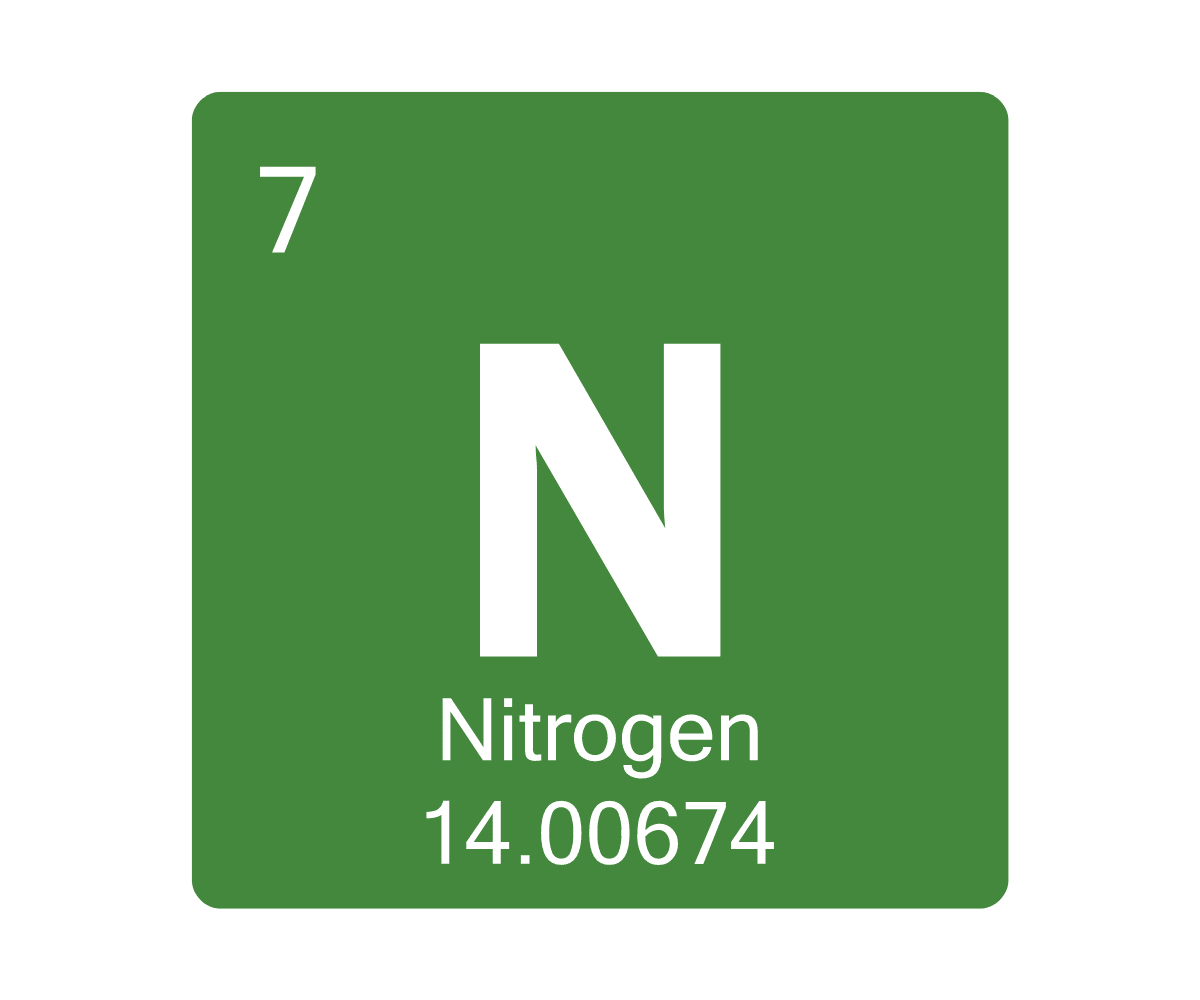Conventional fertilizers increase nitrogen in the soil and thus increase yields, but they result in nutrient run-off. Genesis and FertALive offer a natural solution so that 1) plants get the nitrogen and other nutrients they need to thrive and 2) the nitrogen and other nutrients go directly to the plants and are not gassed off or washed away into rivers and streams.
Nitrogen for Plants

Plants need nitrogen, but they can’t use what’s in the atmosphere as is. In fact, elemental nitrogen in the atmosphere cannot be used directly by either plants or animals. It must be converted to a reduced, or “fixed,” compound like ammonium nitrate to be useful.
Most fixed nitrogen reaches the soil surface as nitrate. Plants then convert the ammonium and nitrate to nitrogen oxides and amino acids. Plants use these to form proteins and other molecules.
But instead of getting nitrogen from fixed atmospheric sources, plants can assimilate nitrogen directly in the form of nitrates present in soil. These nitrates may come from various nitrogen sources, including natural mineral deposits, artificial fertilizers, animal waste or organic decay.
Because nitrate isn’t the most stable form of nitrogen, it doesn’t want to stay in that form and typically follows one of four paths.
-
It goes through the denitrification process facilitated by microbes that result in the nitrogen being lost to the atmosphere in the form of nitrogen gas.
-
Microbes in the soil, which can uptake nitrogen faster than plants, consume it and prevent the nitrogen from leaching until those microbes die.
-
Plants absorb and use it, which is ideal.
-
It can be lost due to gasification if the pH is higher than 7.2 or leaching. These are not ideal options.
Nitrogen for Animals
Nitrogen compounds are basic building blocks in animal biology as well. Animals use nitrogen-containing amino acids from plant sources as starting materials for all nitrogen-compound animal biochemistry, including the manufacture of proteins and nucleic acids.
Animal metabolism of nitrogen in proteins, in general, results in excretion of urea, while animal metabolism of nucleic acids results in excretion of urea and uric acid. Because of this, urea is a common major component of commercial fertilizer due to its high nitrogen content.
Nitrogen in Synthetic Fertilizers

In many places in the world, synthetic high nitrogen fertilizer is applied to croplands in massive quantities. While this conventional method to increase nitrogen may increase yields, it results in nutrient run-off that accumulates in local waterways. This is the fourth and least ideal option that we mention above.
The accumulation of too much nitrogen allows bacteria in the water to thrive past the ecosystem's capacity. The bacteria then deplete the water’s dissolved oxygen to the point that all of the organisms that need it end up dying. This is called eutrophication. The well-known "dead zone" areas in the U.S. Gulf Coast and in the Black Sea are caused by this polluting process.
The Problem
The need for enough nitrogen in the soil but threat of eutrophication and other ecological issues leaves scientists, farmers and ecologists with a conundrum. How do you grow enough crops to feed growing human populations without adding so much additional nitrogen to the ecosystem that you damage the environment?
Our Natural Solution

This is a complex issue that will take different approaches to resolve, but at Southland Organics, we focus on one potential solution. When nitrogen is combined with highly water-soluble humic acid, carbon and high levels of nitrifying bacteria, it has been shown to become a structural component of humic substances as a stable organic material, preventing it from leaching through the soil.
We can achieve this balance with our humate-based soil amendments like Genesis. To find out just how much Genesis can prevent leaching, we conducted a study on 1) soil treated with no Genesis or fertilizer, 2) just fertilizer, no Genesis and 3) soil treated with Genesis and the recommended amount of fertilizer.
We contracted IAS Labs and Agronomist Sheri McLane to perform a leachate test. Leachate is water that has passed through or “leached out of” a solid (in this case soil) and contains some of the elements of the solid it passed through.
Here’s what IAS Labs found:
“In this situation, with Treatment 3 [Fertilizer and Genesis], the extra application of soil microbes from Genesis was able to reduce nitrate loss from leaching by 45% compared to the control (no fertilizer or Genesis) and reduce nitrate-nitrogen loss from leaching by 23% compared to fertilizer applied with no Genesis.”
That’s right, according to the test, Genesis was able to prevent leaching by 45% compared to untreated soil and by 23% compared to fertilizer alone!
Why is this? Genesis enters your soil with a specially designed combination of humic and fulvic acids and a diverse population of bacteria that all work together to improve your soil’s ability to hold on to and promote uptake of additional nutrients.
Genesis works with fertilizers, like our fertilizer FertALive, to increase soil capacity and target nitrogen at several critical points during its cycle. FertALive is a humic acid fertilizer based on organic matter rather than synthetic nutrients. When you add Genesis to the soil plus you add nitrogen through a natural nitrogen source like FertALive, you set your soil up for success. Some folks try bone or blood meal as a natural alternative to conventional fertilizer, but these have a pretty foul smell and, of course, lack the humic and fulvic acids present in our natural soil amendments.
How do Genesis and FertALive work? The humic and fulvic acids increase the net-negative charge of the soil, which means it can better hold on to nitrogen during its positively charged state as ammonium. The microbiology consumes the ammonium, holding nitrogen in their body until they die, at which point it can then be taken up by the plants. The nitrogen and other nutrients go directly to the plants and are not gassed off or washed away into rivers and streams. This promotes plant growth, root development, nitrogen utilization and rapid absorption of nutrients.
Contact Us
Although controlling nitrogen leaching is a much bigger issue than us, we’re happy with the leachate test results and how Genesis and FertALive allow us to do our part to provide sustainable alternatives to conventional soil products.
If you have any questions for us, you can email success@southlandorganics.com or call 800-608-3755. Don’t forget to subscribe to our YouTube channel to be the first to know about helpful lawn and garden info like this!





